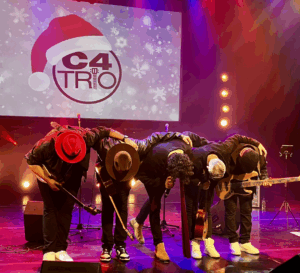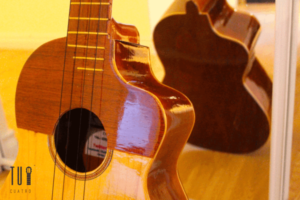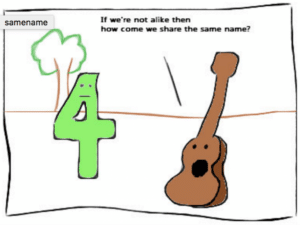Struggling to learn guitar? You’re not alone! Lots of folks find it tough to master chords and strumming patterns and often ask why is guitar so hard to learn or why is learning an instrument so hard. But don’t worry—with the right resources and approach, you can make it much easier. TuCuatro offers courses and lessons taught by pro musicians to help you play guitar and other instruments like the Cuatro, Bandola, Ukulele, and Cavaquinho. We know it is difficult to learn the guitar, but with our help, you’ll achieve your goal of becoming a guitar player. Whether you’re a beginner or looking to improve, our courses are tailored to your needs.
In this article, we’ll talk about the difficulties of learning guitar, the time and effort required, and the best ways to succeed. We’ll also cover the tools and gear you need and what beginners should focus on first. Let’s dive in!
The Difficulty of Learning Guitar
Many people dream of playing their favorite songs on a guitar, but actually learning how to play can be tough. Factors like developing finger dexterity and strength, and reading sheet music (which is different from traditional sheet music) can be overwhelming. Everyone learns at their own pace, so there’s no set timeline for mastering the guitar. It can be more or less difficult to learn the guitar based on your prior experience with instruments and your natural musical ability. The type of guitar you learn (like classical or electric) and your preferred learning style (video lessons or hands-on instruction) can also impact the difficulty.
How Long Does It Take to Learn Guitar?
Learning guitar can take time and commitment. On average, it takes about 6 months to a year to develop basic skills like playing chords and strumming patterns. The amount of time it takes to become proficient depends on how much time you dedicate to practice, your musical ability, and experience with other instruments. The style of guitar you play (classical, rock, etc.) can also impact the learning process.
Is There an Age Limit for Learning Guitar?
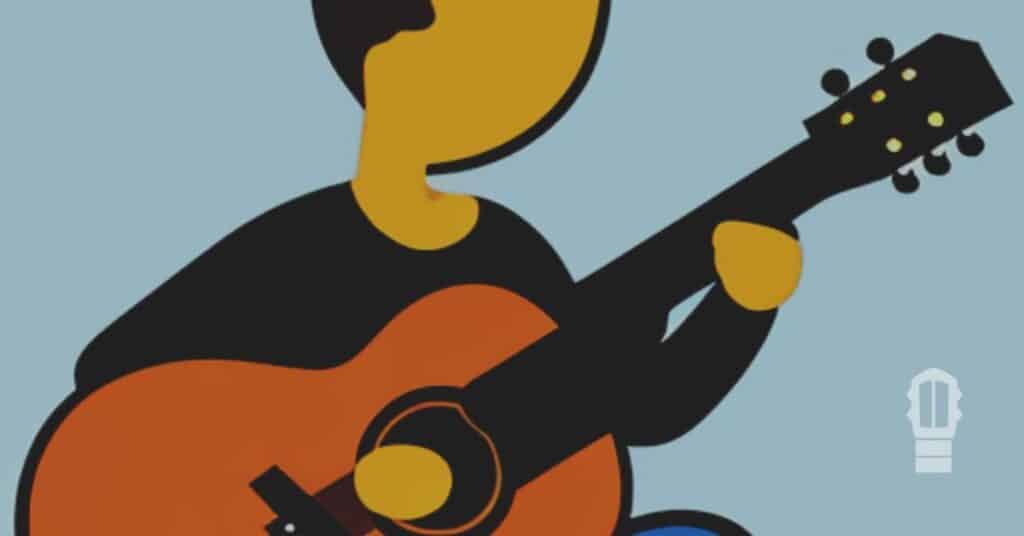
No, there’s no age limit for learning guitar. Whether you’re young or old, with dedication and consistent practice, anyone can learn to play. The guitar is a popular instrument for people of all ages and backgrounds. In the past, guitar was taught through apprenticeships, but now anyone can learn through music schools and educational institutions.
It’s never too late to learn something new, like playing the guitar. No matter your age, you can learn this popular instrument through music schools or online. Learning to play the guitar can boost your brain and help you express yourself creatively. It’s important in today’s world to keep growing and developing new skills. So, grab your guitar and start strumming!
The Fastest Way to Learn Guitar
Learning guitar requires patience, but some methods are more effective than others. The fastest way to learn is through a combination of regular practice and lessons from professional musicians. Practicing regularly and consistently is key to developing your skills. And, getting lessons from a pro can help you avoid bad habits and get personalized advice to help you progress.
Learning guitar is like planting a seed and watching it grow. With patience, effort, and dedication, the seed will bloom into a beautiful, melodic flower. But, to help it grow at a faster pace, you need to provide the right nutrients – in this case, a combination of regular practice and lessons from professional musicians. Just like watering your plant regularly, consistent practice is key to helping your musical abilities flourish. And, getting lessons from a pro is like getting a green thumb’s advice – it can help you avoid any potential mistakes and guide you in the right direction for optimal growth.
Essential Tools and Equipment for Guitar Learning
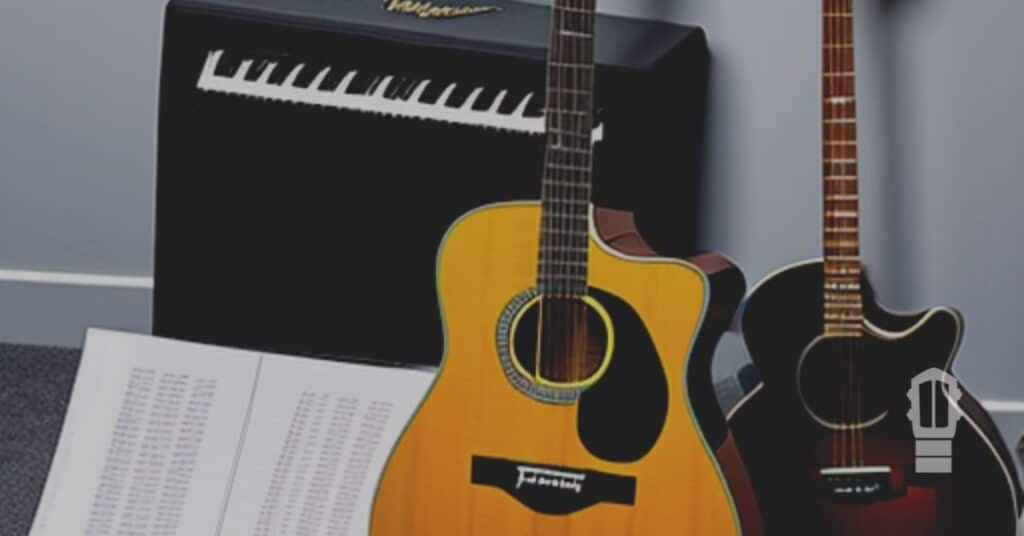
To get started with guitar, you’ll need a few things. A guitar (of course!), a tuner, a metronome, and some instructional materials like books or videos. You may also want to consider a guitar amp if you’re learning electric guitar. As you progress, you may want to invest in other gear like a guitar strap, capo, and picks.
Yep, learning guitar is definitely an investment, both in time and money. But, like all good investments, it pays off in the long run. By putting in the effort to learn and grow as a musician, you’re setting yourself up for all sorts of opportunities, both creatively and financially. And don’t worry about the upfront costs – think of it like buying the tools for a new hobby or job. Sure, it’s an expense now, but it’ll be worth it when you’re jamming out and showing off your skills. So, let’s get started!
What Beginners Should Focus On First
When starting out, it’s important to focus on the basics. Start by learning the guitar’s different parts, the strings’ names, and how to tune your guitar. Then, work on basic chords and strumming patterns. As you progress, you can start incorporating more advanced techniques and styles.

Learning guitar can have a huge positive impact on your life, especially when you start with the basics. Take time to get familiar with your instrument, learn the parts of the guitar, the names of the strings, and how to tune it. Building this foundation early on sets you up for steady progress and gives you a real sense of accomplishment as your skills grow. Along the way, you’ll sharpen your focus, boost your creativity, and discover new ways to express yourself through music. It’s a journey that’s as rewarding as it is enriching.
Remember, learning guitar is a journey, and it takes time and effort to become proficient, but with the right resources and approach, anyone can learn to play!

